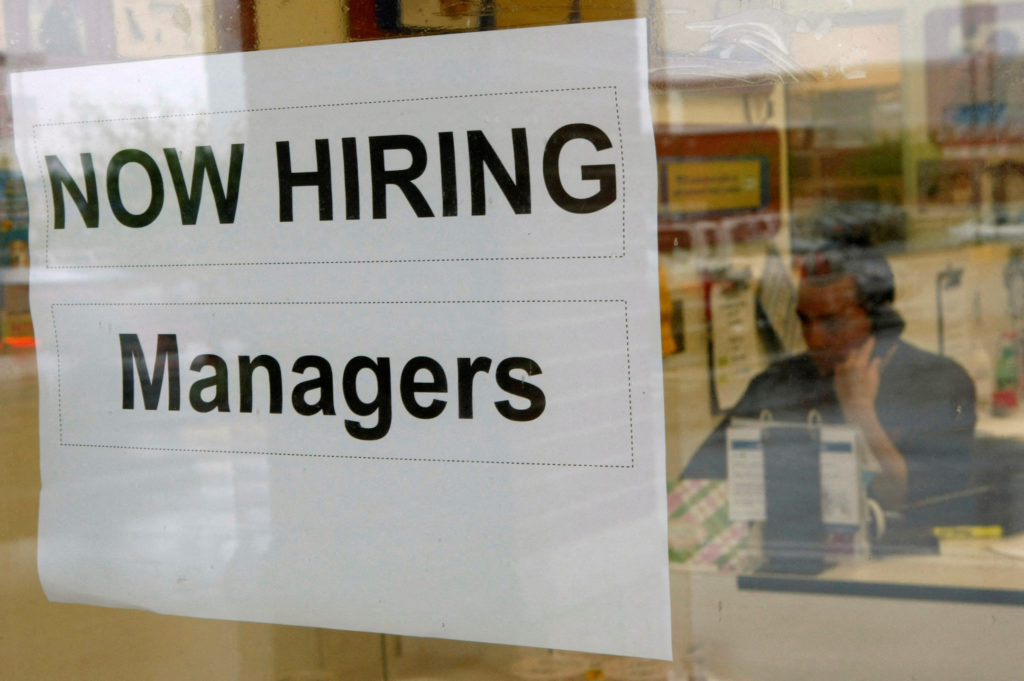 Give by 12/31, so we can continue to deliver intelligent, in-depth, trustworthy journalism.Geoff Bennett Geoff Bennett Shoshana Dubnow Shoshana Dubnow Leave your feedback It was a year in which many experts got a lot of things wrong about the economy.Many economists believed the Fed’s battle to tame inflation with interest rate hikes would trigger high unemployment and a recession.Instead, inflation was cut in half, the economy added more than 2.5 million jobs and the S&P 500 rose to near record highs.Geoff Bennett discussed more with Roben Farzad.
Give by 12/31, so we can continue to deliver intelligent, in-depth, trustworthy journalism.Geoff Bennett Geoff Bennett Shoshana Dubnow Shoshana Dubnow Leave your feedback It was a year in which many experts got a lot of things wrong about the economy.Many economists believed the Fed’s battle to tame inflation with interest rate hikes would trigger high unemployment and a recession.Instead, inflation was cut in half, the economy added more than 2.5 million jobs and the S&P 500 rose to near record highs.Geoff Bennett discussed more with Roben Farzad.
Notice: Transcripts are machine and human generated and lightly edited for accuracy.They may contain errors.Geoff Bennett: 2023 was a year in which many experts got a lot of things wrong about the U.S.
economy.Many economists believed the Fed’s battle to tame inflation with a succession of interest rate hikes would trigger high unemployment and a recession.Instead, inflation was cut in half.The economy added more than 2.5 million jobs, and the S&P 500 index rose to near-record highs.
Roben Farzad, host of National Public Radio’s “Full Disclosure,” joins us now with a look back at the year’s top economic trends and what’s in store for 2024.It’s good to see you, friend.
Roben Farzad, Host, “Full Disclosure”: Likewise, Geoff.Thank you.
So, there was virtual certainty among economists last year that 2023 would see a recession, and the debate was over how long and how serious it would be.That recession obviously failed to materialize.
What did economists misread? Roben Farzad: It shows you what a dismal science it is, and we’re coming off this, hopefully, a once-in-a-generation hit, and the supply chain lockdowns and unemployment spiking to 15 percent in a week, and then moderating, and Uncle Sam throwing trillions of dollars of stimulus at the problem.So what’s going to come out of the other end? There’s no neat history book to look at this.
And so Jerome Powell’s job, I think the conventional wisdom was that, if we did have to suffer inflation, the only way to truly kill it was to send the economy into a recession, potentially a deep recession, the likes of which we saw in the early ’80s after that inflation.
So, the fact that we didn’t see that, and we’re still growing — and, yes, there are indices that show continued misery — I mean, it indicates probably a soft landing.Big tech stocks reclaimed their top spot as market leaders in 2023.What fueled it? A.I., romancing this other idea that there’s something as big as the Internet coming down the pike, that it’s going to put a lot of people out of work, but create millions of other new jobs.
And what do they call them,the Magnificent Seven, Amazon, Apple, Microsoft, the likes there, which routinely cross trillion-plus market capitalization values, which would have been unthinkable.They are the new leaders.But the problem with that is that they so bloat the value of the broader market.I think they represent something like 30 percent of the Standard & Poor’s 500 index.So, you kind of — right now, you live by them and you die by them.Of course, they had a horrible year the year before.
And yet, Roben, there is this disconnect between the actual strength of the economy and people’s perceptions of it, what so many Americans apparently tell pollsters.They have a — sort of a grim view of the economy and where it’s headed.What accounts for that? I think a lot of people are still anchored in pre-pandemic prices.You knew what $20, $40 bought you at the grocery store.And now you’re still indignant that that carton of orange juice is smaller than it was before, and the price is higher, or what bread or eggs cost, or taking your kids out for pancakes on a Sunday.And you’re anchored to that thinking and saying, until and unless we revisit the prices from yesteryear, we are not out of the woods.
But, in reality, that’s not how inflation works.People are running victory laps right now, but the pace of inflation is moderating.And maybe we have killed inflation, but the prices are sticky upwards, and will stay with us.So what should we look for in the weeks and months ahead to get a better picture of what’s going to happen in 2024 in terms of the economy? I mean, if we were sitting here a year ago and doing this — I don’t remember if we did — would anyone have told you, Geoff, let’s look at this crystal ball, three of the four largest bank failures in history are going to happen in 2023? And I would have said… I almost forgot about that, that that happened this past year, yes.
I mean, yes.Gosh, who would have forgot? Right.
It was a footnote that it happened because of a real First World problem.There was too much money in the accounts, and people got freaked out because it might not be FDIC-backed.So they started moving it around on their smartphones.But, you would have maybe suggested, oh, a mortgage meltdown, another economic crisis.So there are idiosyncratic things in this economy.I think all eyes are on the Fed.
Will it really get the leeway to bring down interest rates? Like, investors seem to be unanimous right now in thinking that.Or is inflation going to stay with us far longer than anybody expected? So how will we know? I mean, how will the Fed know whether or not they can bring down rates as quickly as they hiked them? I don’t know, if you go to a man on the street and say, hey, core CPI’s increase is falling, anybody is going to be happy about that.They’re going to know that they’re locked out of the housing market.They’re going to know that a mortgage rate at, whatever, 7.5 percent, is still nowhere near the 2 or 3 percent mortgage they were able to get during the pandemic.But the Fed has its eyes on other indicators.I know, in his heart of hearts, Jerome Powell, if he could pull a lever and take the ebullience out of the housing market, he would do that, and not hurt credit conditions, not hurt small businesses.In reality, the Fed controls these blunt instruments.And maybe you don’t want to inject more stimulus into an economy that in many respects — go to any airport, any restaurant, any resort, right now is kind of overstimulated.
Yes.What story, what economic trend resonated the most with you this past year? I thought that there are finally wage gains for people.There is a sense of indication, if you were a service worker, if you were a sous-chef or someone who for years was kind of biting your tongue, never asked for a raise, that it wasn’t like national fiat about a minimum wage had to prevail.You had clout because of the conditions.You saw what happened with UAW with service workers.You saw what happened with UPS.But at restaurant levels, at retail workers, there’s this whole understanding, again, that you just can’t automate yourself out of these problems.
A lot of people right now cannot beg for workers to show up.
The unemployment is — unemployment rate is before — below 4 percent.And can you hire people without adding to inflation? I think it’s a really tricky thing to do, but there is vindication for people who a few years ago were worth $8 or $9 an hour and now are worth maybe twice that.Roben Farzad.I always feel smarter when I speak with you, Roben.(Laughter) Geoff, you’re the best.Thanks for coming in.
Happy new year.You too.
Watch the Full Episode Geoff Bennett serves as co-anchor of PBS NewsHour.He also serves as an NBC News and MSNBC political contributor.Support Provided By: Learn more Support PBS NewsHour: Subscribe to Here’s the Deal, our politics newsletter for analysis you won’t find anywhere else.
Thank you.Please check your inbox to confirm..
